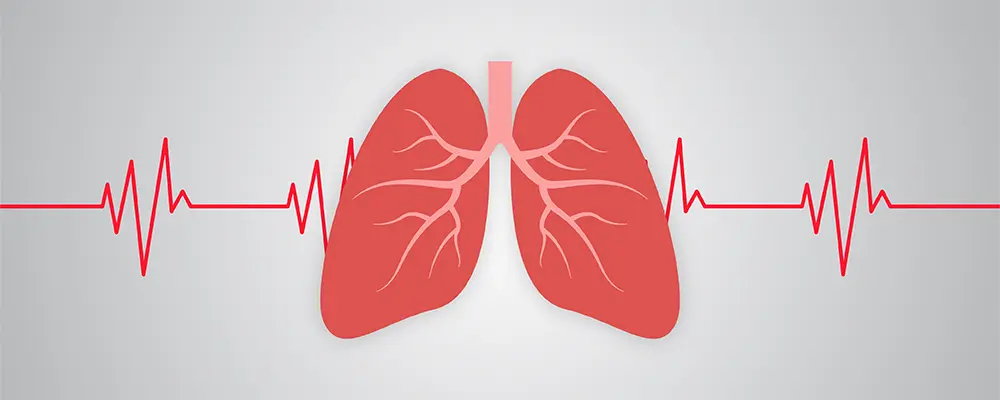Respiratory Sinus Arrhythmia is a fascinating and natural phenomenon that reflects the healthy interplay between breathing and heart rate. This condition, while sounding complex, is a normal and healthy variation in heart rate during breathing. Let’s dive into what respiratory sinus arrhythmia is, its symptoms, and commonly asked questions about this interesting biological process.
What is Respiratory Sinus Arrhythmia?
Respiratory Sinus Arrhythmia (RSA) is a natural variation in heart rate that occurs during the breathing cycle. When you inhale, your heart rate speeds up slightly, and when you exhale, it slows down. This fluctuation in heart rate is a normal and healthy response to breathing. RSA is often more pronounced in young, healthy individuals and can diminish with age or certain health conditions.
The term might sound alarming due to the word “arrhythmia,” which is often associated with abnormal heart rhythms. However, RSA is not a sign of heart disease or malfunction. Instead, it is a sign of good cardiovascular health and an efficient autonomic nervous system.
Respiratory Sinus Arrhythmia Symptoms
Respiratory Sinus Arrhythmia itself typically does not cause symptoms because it is a normal physiological response. Most people are unaware of its occurrence because it does not produce noticeable effects. However, RSA can be detected through medical tests such as an electrocardiogram (ECG) or heart rate monitoring.
While RSA does not cause symptoms, it is important to differentiate it from other types of arrhythmias that may have symptoms such as:
- Palpitations: Feeling of rapid, fluttering, or pounding heartbeats
- Dizziness or Lightheadedness: Sensation of spinning or losing balance
- Shortness of Breath: Feeling breathless or difficulty in breathing
- Chest Pain: Discomfort or pain in the chest area
If you experience any of these arrhythmia symptoms, it is crucial to consult a healthcare professional for proper evaluation, as they might indicate other underlying heart conditions.
FAQs About Respiratory Sinus Arrhythmia
No, this type of arrhythmia is not dangerous. It is a normal variation in heart rate that occurs in healthy individuals, especially young people. In fact, the presence of RSA is often considered a sign of a healthy heart and a well-functioning autonomic nervous system.
Typically, RSA is detected through medical equipment such as an ECG or heart rate monitor. While you might notice subtle changes in your pulse rate when you breathe deeply, these changes are usually too small to be accurately detected without specialized equipment.
Almost everyone has some degree of sinus arrhythmia, especially during childhood and young adulthood. The extent of RSA can decrease with age and may be less pronounced in individuals with certain health conditions.
This type of arrhythmia is caused by the interplay between the respiratory and cardiovascular systems. When you inhale, your heart rate increases slightly due to decreased vagal tone (a component of the parasympathetic nervous system). During exhalation, the heart rate decreases due to increased vagal tone. This modulation of heart rate helps optimize the efficiency of gas exchange in the lungs.
Maintaining overall cardiovascular health can support the presence of RSA. Regular physical activity, stress management, and a healthy diet can promote autonomic nervous system balance and cardiovascular function. Practices such as deep breathing exercises and meditation might also enhance RSA by promoting relaxation and reducing stress.
Yes, this type of arrhythmia is often associated with good cardiovascular health. A pronounced RSA indicates a responsive autonomic nervous system, which is linked to better heart rate variability (HRV). Higher HRV is generally considered a marker of good health and resilience to stress.
Yes, this type of arrhythmia can decrease with age. Children and young adults typically exhibit a more pronounced RSA. As people age, the autonomic nervous system may become less responsive, leading to a reduction in the extent of RSA.
Certain conditions and factors can affect RSA. For example, autonomic nervous system disorders, diabetes, heart disease, and aging can diminish RSA. Conversely, maintaining good cardiovascular health through lifestyle choices can help preserve RSA.
Yes, RSA can be used in clinical assessments as a measure of autonomic nervous system function and heart rate variability. It can provide insights into a person’s cardiovascular health and stress resilience. However, it is just one of many factors considered in a comprehensive health evaluation.
Conclusion
RSA is a natural and interesting process where your heart rate changes as you breathe. Although the word “arrhythmia” might sound worrying, RSA is a sign of good heart health. It helps explain the normal heart rate changes that happen with breathing and shows how adaptable the human body is.
By understanding that RSA is normal and not confusing it with other heart problems that might need medical care, people can better appreciate their body’s natural rhythms. Maintaining a healthy lifestyle and seeing a doctor for any concerning symptoms are important for overall health.
Learning about RSA not only expands our understanding of how the body works but also highlights the close relationship between our breathing and heart rate. Whether you are into health or work in the medical field, RSA is a fascinating topic that shows the body’s amazing ability to adjust and stay healthy.




